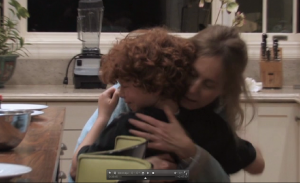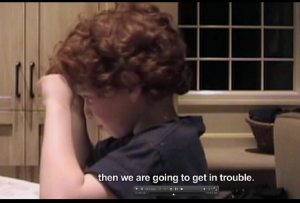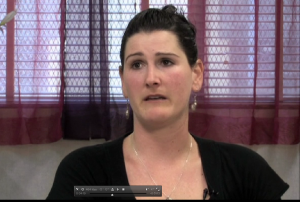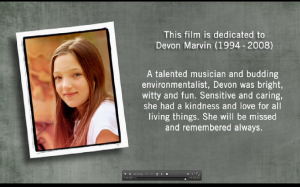The 2009 documentary, A Race to Nowhere, was the brainchild of movie director/protective parent/concerned citizen, Vicki Abeles. The film contains a powerful combination of “expert” interviews and emotional vignettes to convince viewers of the dangers of putting students under too much scholastic pressure. We meet a high school girl who starves herself to stay up and do homework, ultimately resulting in her admittance to a psychiatric hospital for anorexia. Depression, stomach pains, and headaches are the tip of the iceberg for the students depicted in Race to Nowhere. In the beginning of the film, the director discusses her own children’s struggle with anxiety induced illness. According to the film’s website, “[Race to Nowhere] reveals an education system in which cheating has become commonplace; students have become disengaged; stress-related illness, depression and burnout are rampant; and young people arrive at college and the workplace unprepared and uninspired”[1]. Throughout the film, the audience is shown one tragic case after another to expose the harmful side effects of America’s obsession with achievement and performance.
The film makers of Race to Nowhere pulled out all the stops to ensure that this documentary tugged at the heart strings. Anxious about their future’s dependence upon their academic performance, the desperate students in the film took prescription drugs, starved themselves, and stayed up all night to make the grade. The film portrayed students as victims of the system and framed parents as helpless bystanders. The selected interviews and imagery in the film were incredibly emotional. There were several scenes that showed the poor overworked students in emotional distress.

Ten year old Zachary and his mother were the most difficult for me to watch. In one scene, Zach is sitting at the kitchen table slaving away and obviously stressed. He twirls the pencil through his red curly hair as he tells his mother about the consequences of giving an incorrect response to his homework [00:38:23]. Zachary fearfully warns his mother, “If we forget this mom or if I do a different one, then we are going to get in trouble. Then we lose five minutes of recess.”[2] The way this scene is structured makes taking recess away from a child facing adult-like pressure to perform seem like a crime. The film paints a clear picture of victims and villains.

To go a step farther in the fight against homework, Race to Nowhere had several experts whom stated that homework is detrimental to the long term mental, social, and intellectual success of students. An AP science teacher says that when he cut student’s homework load in half they scored better on the AP test. If that doesn’t move you to ban homework everywhere, watch as an incredibly passionate English teacher cries on camera as she talks about how the pressure of performance is making it impossible for her to teach her students valuable critical thinking skills [00:34:19].

The most critical point of the film was the final scene. In the closing frames, viewers learn that the film is dedicated to young Devon Martin who took her own life, because of a poor math grade. The film closes with her picture and several frames containing advice for everyone from parents to students to teacher to school administrators. This is definitely a call to community action on behalf of children who the films claims are being robbed of their childhoods.

One thing that troubled me was the omission of the driving force behind the culture of competition and achievement. Teachers are not giving ridiculous amounts of homework, because they love grading papers. They are facing the same pressure to perform that their students are facing. A variety of teacher interviews would have made the arguments presented in the film more credible.
If ending homework is the way to improve student’s experiences in education, it would have been nice to hear from the principal in Wyoming that chose to do away with homework altogether. Education reformers are constantly discussing a lack of challenging curriculum for students. In this documentary, we did not hear any thoughts from those responsible for creating school curriculum. No current school administrators were consulted to shed some light on why they feel homework is an important part of school education. I also find it odd that of all the families featured in the film, there was not one that was grateful for the extra time, effort, and attention teachers were putting into creating such challenging coursework. There is obviously some benefit to a rigorous academic curriculum. This documentary only presents information that will garner support for the filmmakers’ mission to change the way student success in education is evaluated.
Works Cited
[1] “About the Film.” Race to Nowhere:Leveraging the Power of Community to Transform Education. Reel Link Films, n.d. Web. 24 Feb. 2013.
[2] Race to Nowhere. Dir. Vicki Abeles. Reel Link Films, 2010. Web.
Karen, great post on A Race To Nowhere. After reading through many of the video analysis, I found yours to be the most compelling. I like how you bring to surface the problem that exists with grading, testing, etc. As students, we tend to stretch ourselves to meet and exceed expectations. I find it quite sad that a child so young decided to take her own life because of a poor test grade. Not to mention the fact that Zachary is also too young to seem so stressed over anything. I think you would agree with me when I say that children should not be stressing anything. Thanks for your insight, I will definitely try to watch this documentary on my own time.
Also, although the film that I watched- Waiting for Superman does not really place an emphasis on the importance of testing, the director does make the claim that in order for any child to succeed, they will have to attend GOOD schools. He constantly implies that without proper instruction, children are doomed, and on the risk for failure.
Karen,
It was interesting to read about a film that was completely different from the one I watched. I watched The Lottery, which focused on the charter school movement and its ability to better the education system. Although it used the lives of four children who desperately wanted the chance to attend Harlem Success Academy (the school of focus in the film) it did not discuss the effects of the standards and testing culture that plagues the education system today. It is indeed very important to close the achievement gap but at what cost are educators willing to do it? A Race to Nowhere offers a great look at education through the eyes of the children who should be the number one priority. It also challenges reformers to look beyond a “one size fits all” approach to solving the problems that exist in the education system by addressing a side of the education system that is just as important to change as issues of funding and teachers.
I really enjoyed reading your video analysis, and I definitely want to check out the film!
Great review Karen. I had to watch this documentary for the source detective posting and was struck as well by the heart-wrenching nature of how these stories were presented. The story of young Devon and the unfortunate consequences of such a miniscule concept of a bad math grade is so alarming that it almost hard to conceive of something like this happening. I came away from the movie with the same take you did in that I agree with the movie’s case for abolishing homework. From my perspective, I find I look at the differences between my experience growing up and the kinds of experiences my little brother (13) and sister (12) are having. The kinds of pressure put on them since 5th grade on has been astronomically more goal oriented than mine ever was. I think unfortunately even in family’s and cultures that are actually very positive environments for children such as my family can even fall victim to this trap of the academic treadmill, so to speak.
This video analysis successfully captures several of the pivotal scenes in Race To Nowhere and its effective combination of emotional pulls and expert testimonials. Excellent insight into the missing companion story about pressure on teachers to meet district/state/federal accountability requirements. A stronger essay would have incorporated an external source as required by the assignment.